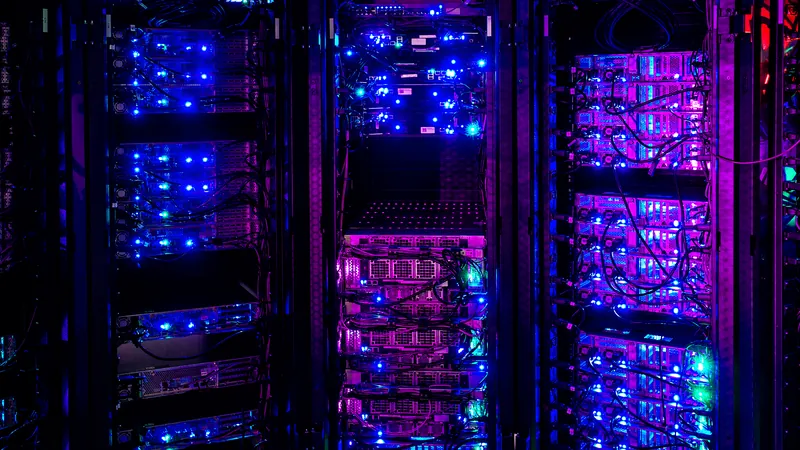
Unlocking the Future: What You Need to Know About Exascale Computing
2025-05-20
Author: Liam
Exascale Computing: A Game Changer in Supercomputing
Exascale computing marks a revolutionary leap in supercomputing technology, allowing computations at mind-boggling speeds that were once thought impossible. Imagine computers that can handle over a quintillion calculations per second—this is the promise and power of exascale systems.
What Exactly is Exascale?
To break it down, 'exascale' refers to computers that perform at least one exaflop, or one quintillion floating-point operations per second. While typical home computers usually operate in the teraflop range—around 5 trillion calculations per second—exascale systems blitz through calculations at a staggering pace. Gerald Kleyn from HPE describes it as being capable of running simulations on a planetary scale.
The Pioneers of Exascale Computing
The first exascale computer, Frontier, was unveiled by HPE in June 2022, clocking in at an astonishing 1.102 exaflops, quickly topped by El Capitan at 1.742 exaflops. As of now, only two exascale supercomputers exist, yet they are changing the game. During the COVID-19 pandemic, these machines played a vital role in analyzing massive datasets to model the virus, significantly speeding up the research process.
The Nuts and Bolts of Exascale Systems
What goes into creating such a powerhouse? Tens of thousands of CPUs and GPUs are densely packed to reduce latency, the critical time for data transfer between components. However, this high packing density leads to significant heat generation, necessitating advanced cooling systems to maintain optimal operating temperatures.
The Challenges of Exascale Computing
Despite their impressive capabilities, exascale computers face daunting challenges. Reliability is a major concern, as the average lifespan of components extends to mere hours under such demanding workloads. They employ checkpointing systems to save progress, mitigating the risk of data loss during failures.
Energy Management and Sustainability Issues
Exascale systems require tremendous energy to run, but can paradoxically lead to long-term energy savings by allowing virtual simulations instead of real-world iterations. However, cooling and energy management systems are critical, as they impact overall operational efficiency.
The Future: Quantum Leap Ahead?
As technology advances, we're looking towards a future of zettascale computing—a staggering one sextillion operations per second. While exascale systems excel in rapid calculations, quantum computers are on the horizon, promising even greater computational capabilities. The next frontier may well be hybrid systems that combine classical computing with the unique advantages of quantum technology.
Conclusion: The Road Ahead
Exascale computing is not just a leap in processing speed; it's paving the way for breakthroughs in science, medicine, and more. As we continue to innovate in cooling technologies and component designs, these supercomputers will unlock solutions to problems previously deemed impossible, ushering in a new era of computational power.









 Brasil (PT)
Brasil (PT)
 Canada (EN)
Canada (EN)
 Chile (ES)
Chile (ES)
 Česko (CS)
Česko (CS)
 대한민국 (KO)
대한민국 (KO)
 España (ES)
España (ES)
 France (FR)
France (FR)
 Hong Kong (EN)
Hong Kong (EN)
 Italia (IT)
Italia (IT)
 日本 (JA)
日本 (JA)
 Magyarország (HU)
Magyarország (HU)
 Norge (NO)
Norge (NO)
 Polska (PL)
Polska (PL)
 Schweiz (DE)
Schweiz (DE)
 Singapore (EN)
Singapore (EN)
 Sverige (SV)
Sverige (SV)
 Suomi (FI)
Suomi (FI)
 Türkiye (TR)
Türkiye (TR)
 الإمارات العربية المتحدة (AR)
الإمارات العربية المتحدة (AR)